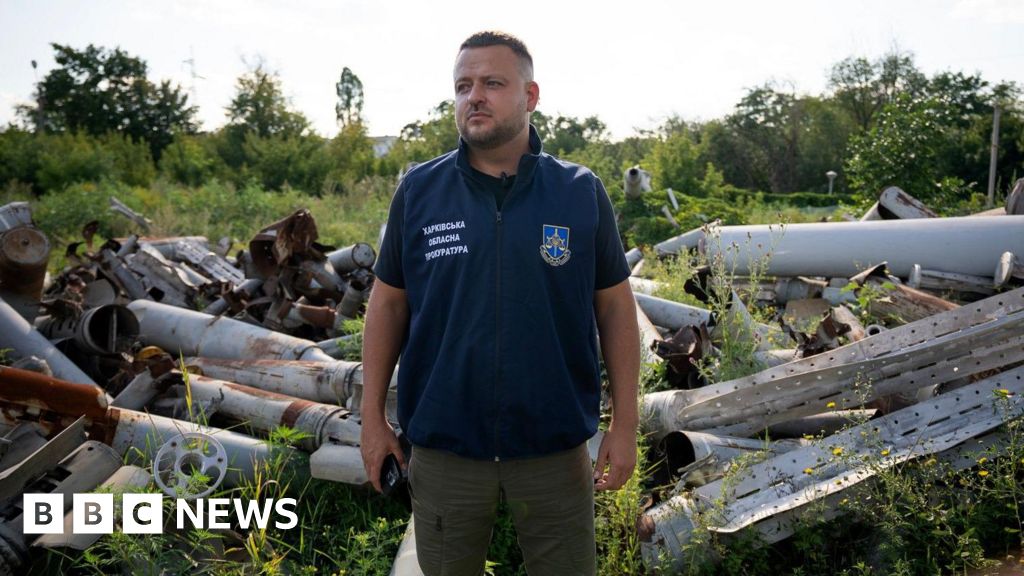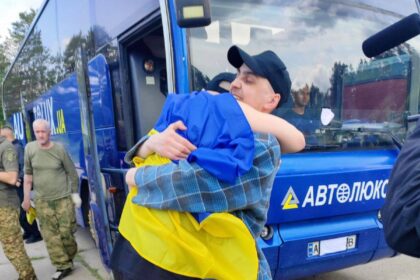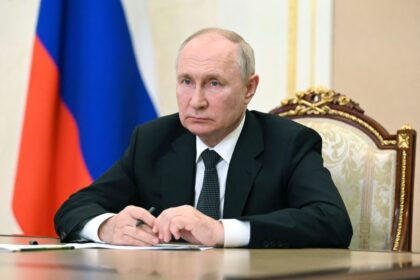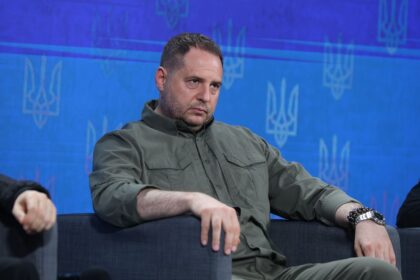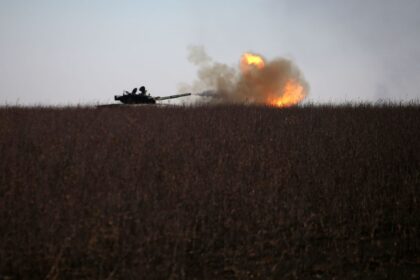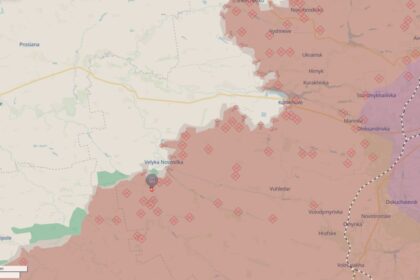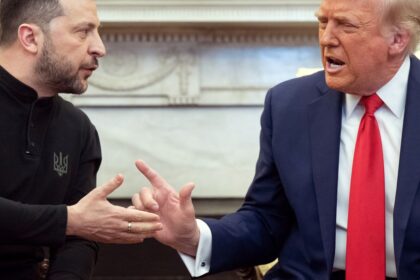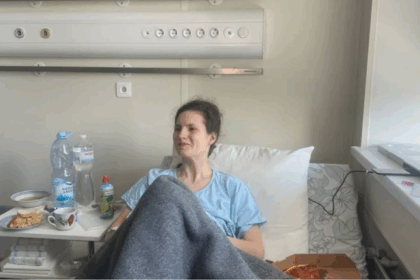**Russia’s Invasion of Ukraine: Western Sanctions Fail to Stem the Tide**
As Russia continues its full-scale invasion of Ukraine, the West has imposed far-reaching sanctions on the aggressor in an attempt to curb its war efforts. However, these sanctions seem to have had limited impact on the ground in Ukraine.
In a secret location just outside Kharkiv, a collection of twisted metal remnants from Russian attacks serves as stark evidence of the brutality of the conflict. Here, prosecutors carefully collect and analyze every piece of rocket and drone used by Russia, with the aim of proving the country’s guilt in committing war crimes.
“We have collected over 200 pieces of debris,” says Dmytro Chubenko, a prosecutor from the Kharkiv Region Prosecutor’s Office. “Every single one of them will be used as evidence to hold Russia accountable for its actions.”
The investigation is painstaking and meticulous, with prosecutors documenting every detail of each attack. They have collected drones worth $20,000 each and missiles that cost millions. But despite these efforts, the sanctions imposed by Western nations seem to be having little effect.
**Trump’s Increased Pressure on Putin**
In a bid to boost pressure on Russia, US President Donald Trump has threatened to impose additional sanctions if a ceasefire is not agreed upon by this Friday. The US has also announced plans to impose secondary sanctions on countries trading with Russia.
“This is a necessary step,” says Dmytro Chubenko. “Hitting Russian oil and gas exports could have a significant economic impact, but we need to do it.”
Kharkiv, just 30 kilometers from the Russian border, has borne the brunt of many strikes throughout the war. Thousands of buildings have been damaged or destroyed, and almost 3,000 civilians have been killed, including 97 children.
**Investigating War Crimes**
Police Colonel Serhii Bolvinov shows me around a makeshift office in Kharkiv, where investigators are carrying out forensic work to build a criminal case against those responsible for the attacks. The team is made up of over 1,000 men and women, who are dispersed across the city.
“We’re not just investigating war crimes,” says Colonel Bolvinov. “We’re also working towards justice for the victims and their families.”
The team has collected evidence from mass graves, including a recent discovery in Izium where over 400 bodies were found. They have also identified Russian military officers who are suspected of being involved in specific attacks.
**A Mother’s Loss**
Nearby at a cemetery outside Kharkiv, I meet Yulia, a mother who lost her 14-year-old daughter Sofia last year. She was killed by a Russian glide bomb while sitting on a park bench with a friend.
“These conversations have been going on for too long,” she says. “But so far, there are no results… Hope is fading.”
The cemetery serves as a stark reminder of the human cost of the war. The silence here is only broken by the sound of flags flapping in the wind.
**A Call for Justice**
As I speak to Colonel Bolvinov and Dmytro Chubenko, it becomes clear that justice is not just about holding Russia accountable for its actions. It’s also about providing closure for the victims and their families.
“We want peace without justice,” says Colonel Bolvinov. “But peace without justice is not really peace.”
The investigation into war crimes in Ukraine serves as a reminder of the need for accountability and justice, even in the face of ongoing conflict. As Western nations continue to pressure Russia, it remains to be seen whether this will be enough to bring about an end to the fighting.
Read More @ www.bbc.com




